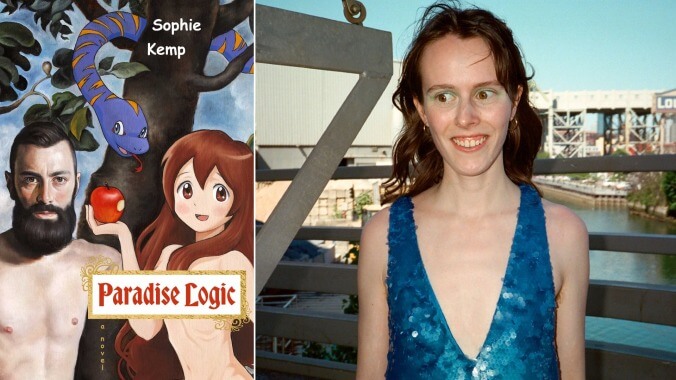‘Paradise Logic’ Is an Absurdist Novel About a 23-Year-Old’s Goal to Be the Best Girlfriend Ever
"I don't think that you have to write a book that everyone likes," Sophie Kemp told Jezebel of her debut novel, and its "incredibly naive young" protagonist.
Photo: iStockphoto BooksEntertainment
In her debut novel, Sophie Kemp has more or less turned the Reductress headline “How to Let Any Guy Ruin Your 20s” into a book. Paradise Logic follows 23-year-old Reality Kahn, whose decision to find and maintain a relationship is thrust to the heights of absurdist obsession.
Her relentless fixation on being the “best girlfriend” often makes her tedious company—her delusional nature can really set your jaw on edge—but that’s kind of the point: She’s a vehicle for satirizing the way young women are (still!) socially conditioned to equate dating with worth. “He was going to imbue my life with meaning!” Reality enthuses when she meets Ariel, whom she decides will be her boyfriend. “I was an outline on the page, and he was going to color me in!” (Predictably, he is ultimately disinterested in commitment.)
Reality embodies patriarchally dictated malleability, contorting herself to reflect the male gaze like some kind of “young sex crystal.” She consults a publication called Girlfriend Weekly, uses a pharmaceutical that promises to make her a better girlfriend, and attends a caucus for girlfriends at Mount Nothing (located “somewhere” in Switzerland).
The men she encounters throughout the book mostly perceive her as deranged (and, frankly, that’s an easy conclusion to draw). One man she sleeps with wonders if she learned about socializing from flashcards; at other times, she’s deemed “special needs” and “an ethereal bimbo with no interiority.” Whether she is as vacuous as she seems is up to the reader to decide. If there’s ultimately a lesson to be learned in Paradise Logic, it’s in the text message Reality receives from her roommate: “It’s not that interesting to be regularly fucking someone.”

Photo Credit: Simon & Schuster; Daniel Arnold
Kemp is well aware that Reality might not be for everyone—but she doesn’t care, she told Jezebel in a recent interview, where she also discussed the first artistic medium she fell in love with (zines), having strong opinions about the novel’s cover (see above), and the humor of melodrama.
This interview has been edited and condensed for length and clarity.
Could you talk about the naive tone and how you arrived at it?
I had this vague idea for a book I wanted to write, and originally it was just shitty autofiction. I love reading Ben Lerner and even Knausgård, but that’s not really a style that, like, calls to me. So I had this idea for a shitty autofiction novel, but I knew I was never gonna write it because I wasn’t interested in writing it.
I started to think about what the story I actually wanted to tell was, and that was a story of an incredibly naive young woman who thinks that she could fix all of her problems just by dating a man, at an age where she could just kind of date anyone. Then I just had to find a container for it that I liked, and that was this absurd, naive tone that came from reading a lot of Kathy Acker and [the American absurdist writer] Donald Barthelme.
-

-

-

-

-

-

-

-

-

-

-

-

-

-

-

-

-

-

-

-

-

-

-

-

-

-

-

-

-

-

-

-

-

-

-

-

-

-

-

-








































